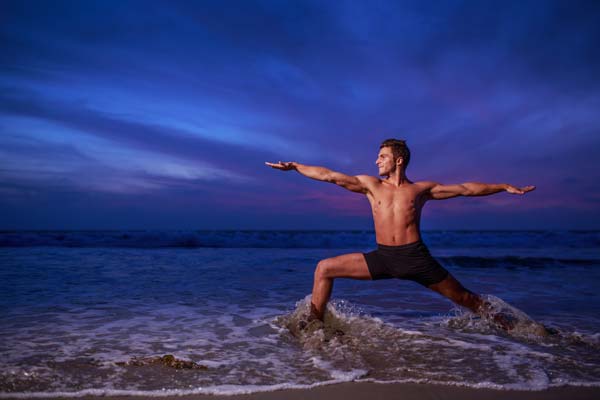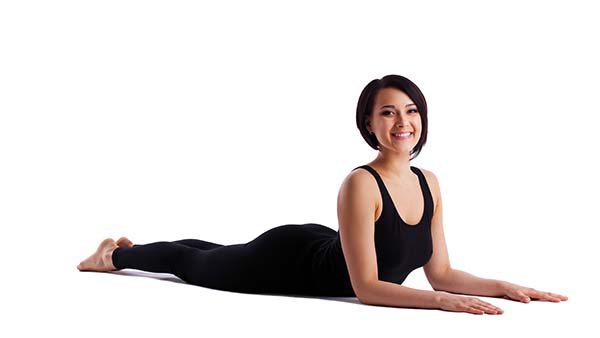Yoga is great for a lot of things, especially relaxation and flexibility. But it can also be wonderful for managing pain. Here’s how yoga can help with both knee pain and lower back pain.
Yoga and Knee Pain
To what extent does its significance stretch? Although all of us know yoga is important. By performing the different yoga poses, physical, religious and mental wellbeing is reaped by a person. Mentally, yoga leads to relaxation, reduced stress levels, encourages self-awareness and re-energizes the mind. Yoga touches the soul of a person results in a peaceful inner feeling. Yoga works to ensure positive and healthy living by having the physical body and mind in the right shape.
Flexibility is one great advantage you will reap the benefits of yoga poses. Anyone who is into yoga will certainly consent to this fact. Yoga will demand your body goes constantly changing manners and extends. Over a brief time frame, hips, your back and hamstrings will develop great numbers of flexibility. Yoga can revitalize and restore flexibility.
Yoga improves body strength. Over time, people will recognized great improvement of muscle tone; muscles that are powerful and lean will be the merchandise. Also, equilibrium will accompany these advantages.
This really is their crucial part in body freedom and due to the big numbers of weight they support. Exceptionally mobile folks like riders and sportsmen have reached higher risk of knee injury. Research recently revealed that yoga exercises are an improved means of relieving pain’s knee. Below are a few of the most effective yoga poses for knee pain.
The supported warrior pose. It is suggested for instances of degenerative bone illness or knee inflammation. Here is how to do it. After standing in front of a wall, have your hands stretched forwards at the shoulder level in order to touch the wall. Next, move your left foot until you’ve got the toes partly touching the wall. Have your right arm stretched along the right limb, the left arm should be stretched along the lower left limb. From your right foot, take two steps back and have left knee flexed. As of this position, hold your breath for not less than 15 seconds. Stretch the left limb thus as the exercise is redone now on the right lower limb.

Makrasana. On a mat that is clean, have your body. While keeping this posture, stretch backwards so as your body lies on the ground until the head touches the floor. Stay in this location for some seconds before sitting in the first pose.
Tadasana is another great yoga pose for knee pain. It focuses the essential processes. While standing, let your feet be business on the earth. Discipline yourself to keep slow and steady respiration where you inhale expel the air through the mouth. Remember to keep the back muscles direct in the entire procedure.
Yoga is a gentle and less impact process to keep the body fit. It truly is mild to old bones, it is among the perfect exercises for a successful aging process. Begin yoga today and reap the gains.
Yoga and Lower Back Pain
All over the world, lower back pain is one of most common grievances. The Mayo Clinic states that most people will experience low back pain at some time in their lives. Lower back pain is experienced by sedentary people in addition to highly-trained sportsmen. It is not difficult to see lower back pain is an issue, if you examine an average weekday of an average American who works a nine-to-five job.
Upon awakening one may sit before sitting to drive to work to have coffee or breakfast. The corporate worker will frequently sit at a desk or in meetings until lunch when arriving at work. Lunch includes more sitting, before sitting at the desk to complete the workday. Then obviously there’s another sit-down meal and the commute home. Exhausted from a long day of sitting at the office one may choose to sit on the sofa to watch television. If we look at it from an anatomical perspective we recognize the hamstring muscles and the illiopsoas muscles are shortened in the many hours of sitting and this causes strain on the lower back.
Athletes on the other hand aren’t sedentary, so why the lower back pain? Any weight-bearing sport or exercise that involves rapid dynamic motions, or running, jumping produces tension on the lower back. Overuse injuries may occur when these actions are duplicated over time without releasing and properly extending these muscles that are tight.
For the sedentary nine to five worker exercise is crucial for reducing the threat of diabetes and heart disease in addition to alleviating lower back pain. Nevertheless, I’m assuming you are not in that group. In the event you are, then then add cardiovascular exercises in addition to the stretches proposed below. If you have a slipped disc in sciatica or the lower back, please prevent all deep forward bends can make your condition worse.
When you are coping with low back pain, you actually get a sense of how much you use those muscles through the day, don’t you? From sitting at your computer to doing laundry in the garden, your back takes lots of abuse. A number of us spend sitting in front of a computer screen, and it’s not smooth .
Related Reading: A COLLECTION Exercises for Better Bearing AND STRENGTH
Obviously, if your back pain is severe, it’s wise to speak with your doctor first. Low back pain may be an indicator of serious problems and you’ll desire to seek medical help if that is the case,. Based on what’s going on, your doctor may suggest anything to surgery, and it’s better to get his back exercises that are low that are OK to the mix.
If your back pain is from poor posture, days spent sitting at the desk, or even menstrual cramps, these poses can go a ways in giving you some relief! One chose some beginner poses, in order that no matter what your fitness level you are able to add in these low back stretching and strengthening exercises.
Supine Hamstring Stretch
Back pain, low back pain, yoga for back pain, back pain relief, yoga for backLying on your back, bend your right knee into your chest and place a strap or rolled-up towel around the ball. Straighten your leg toward the ceiling. If the lower back feels strained, bend the left knee and place the foot on the earth.
Two-Knee Pull
Low back pain, yoga for back pain, yoga for back pain relief, backLying on your back, bend your knees into your chest and bring your arms out at a T. As you exhale lower your knees to earth on the right. Keep both shoulders pressing down securely. If the left shoulder face lifts, lower your knees farther from the arm that is right. Hold for 1-2 minutes each side
Sphinx
Align your elbows directly under your shoulders. Press hard through the tops of your feet and your palms. Press your pubic bone forward. You may feel your lower back for senses, but breathe through it. You’re enabling blood flow into the lower back.

Pigeon
Back pain, low back pain, yoga for back pain, back pain relief, yoga for backFrom all-fours, bring your right knee behind your right wrist with your lower leg at a diagonal toward your left hip. Square your hips off toward the earth. Bend forward. Widen the elbows and place one hand in addition to the other as a pillow for the forehead. Hold 2-3 minutes and after that change to the left side for 2-3 minutes.
Thread the Needle
Back pain, low back pain, yoga for back pain, back pain relief, yoga for backLying on your back, bend both knees flat on the earth. Flex the right knee with the outer left ankle, like a figure four. Lift the left foot into the air, bringing the left calf parallel to the ground. String your right hand between the legs’ opening and interlace your hands. Hold 2-3 minutes and after that repeat on the opposite side.
Back pain, low back pain, yoga for back pain, back pain relief, yoga for backScoot your buttocks all the way and swing your feet up the wall. This pose is excellent for relaxing the muscles of the lower back and drains stagnant fluid from ankles and the feet. Do this pose after traveling by airplane and consistently after a challenging workout. Hold for 5-10 minutes.
Cat/Cow Poses
Cat/Cow is really a pair of yoga poses, but they go so nicely together, let us simply lump them into one! By cycling between the two positions, you warm up and stretch your back muscles, including the lower back.
To practice these postures, you’ll need to get on your hands and knees with your hands lined up beneath your shoulders and your knees in line with your hips. Take a deep breath in, so when you inhale you want to bend your backbone, so you are pulling on your belly toward the floor, your head leans back, and your bottom lifts toward the sky.
In your exhale, scoop the belly curling your chin toward your chest arching the back up, and tucking your tailbone under under. Repeat these two poses, gently curling in on the and extending through to the inhale exhale, as many times as you like.
Downward Facing Dog
Downward facing dog is very good for improving position, which helps support all of your back muscles and strengthening the lower back.
Start out once again on knees and hands, but walk your hands outside so they are just before your shoulders. Curl your toes under, and push up, straightening your legs and lifting your bottom toward the sky. You want to employ your abs, so your back is straight, and focus on pulling on your shoulderblades. Let your head employ your thigh muscles to further support your back, and hang neutrally.
I’d recommend staying in for at least 10 deep breaths, although you are able to hold this pose for as long as is comfortable.
Chair Pose
Chair pose is amazing for strengthening the lower back muscles. This pose can be a bit strenuous if you are new to it, so listen to your body and take it slowly.
Come to a standing posture with your feet side by side and touching each other and your arms. Inhale, and as you exhale like you are going to sit back into a chair, bend your knees. Now, raise your arms straight out in front of you until your arms are parallel to the floor.
Yoga for Flexibility
